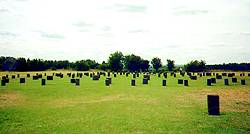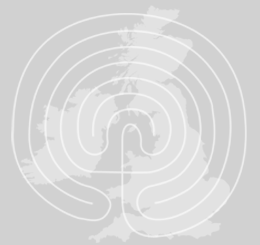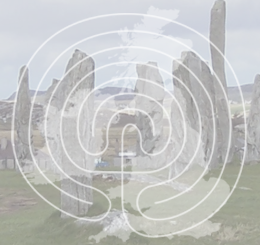Berwick upon Tweed Vampire
This account of a haunting is considered to be one of the earliest possible accounts of a vampire in Britain. It was written by William Parvus, also known as William of Newburgh (or Newbury) (Born 1136 – Died 1198), an Augustinian Canon who wrote several accounts of haunting/potential vampire cases.
‘At the mouth of the river Tweed, and in the jurisdiction of the king of Scotland, there stands a noble city which is called Berwick. In this town a certain man, very wealthy, but as it afterwards appeared a great rogue, having been buried, after his death sallied forth (by the contrivance, as it is believed, of Satan) out of his grave by night, and was borne hither and thither, pursued by a pack of dogs with loud barkings; thus striking great terror into the neighbors, and returning to his tomb before daylight. After this had continued for several days, and no one dared to be found out of doors after dusk – for each dreaded an encounter with this deadly monster – the higher and middle classes of the people held a necessary investigation into what was requisite to he done; the more simple among them fearing, in the event of negligence, to be soundly beaten by this prodigy of the grave; but the wiser shrewdly concluding that were a remedy further delayed, the atmosphere, infected and corrupted by the constant whirlings through it of the pestiferous corpse, would engender disease and death to a great extent; the necessity of providing against which was shown by frequent examples in similar cases. They, therefore, procured ten young men renowned for boldness, who were to dig up the horrible carcass, and, having cut it limb from limb, reduce it into food and fuel for the flames. When this was done, the commotion ceased. Moreover, it is stated that the monster, while it was being borne about (as it is said) by Satan, had told certain persons whom it had by chance encountered, that as long as it remained unburned the people should have no peace. Being burnt, tranquility appeared to be restored to them; but a pestilence, which arose in consequence, carried off the greater portion of them: for never did it so furiously rage elsewhere, though it was at that time general throughout all the borders of England, as shall be more fully explained in its proper place.’
The account does not provide an exact location for this case and therefore the map below obviously cannot be accurate.




Recent Comments